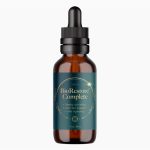Springtime brings the blossoming of flowers and the rejuvenation of nature, but for millions, it also heralds the return of seasonal allergies. Known as hay fever or allergic rhinitis, seasonal allergies result in sneezing, congestion, and discomfort, transforming the joy of mild weather into a struggle for relief. In this comprehensive guide, we delve into everything you need to know about managing seasonal allergies effectively, presenting a plethora of strategies supported by expert insights and relevant studies.
Understanding Seasonal Allergies
Seasonal allergies occur when the immune system reacts to airborne substances that are generally harmless, such as pollen from trees, grasses, and weeds. For some individuals, these allergens can also include mold spores prevalent in certain weather conditions. The immune system treats these substances as threats, releasing chemicals like histamines which give rise to symptoms such as sneezing, itching, and a runny nose.
Factors Influencing Allergy Symptoms
Several factors affect the severity and frequency of allergy symptoms. Genetics play a significant role, as having a family history of allergies increases the likelihood of developing them. Additionally, environmental factors such as pollution and climate change can exacerbate allergens. The type and amount of allergens a person is exposed to also determine the intensity of symptoms.
Strategies to Manage Seasonal Allergies
Reducing Exposure to Allergens
Minimizing exposure to allergens is a crucial step in managing seasonal allergies. Simple lifestyle changes can make a significant difference:
- Stay Indoors During Peak Pollen Times: The best time to avoid outdoor allergens is after a heavy rain, as the rain helps clear pollen from the air. Conversely, dry and windy days are when pollen is most likely to be airborne. Staying indoors during such conditions can reduce exposure.
- Use Air Conditioning: Keeping windows closed and using air conditioning can help filter out pollen and other allergens. Ensure that air filters are cleaned regularly to maintain their effectiveness.
- Wear a Mask: If outdoor activities are unavoidable, wearing a mask designed to filter out pollen can be beneficial.
Home Environment Modifications
Creating an allergen-free environment at home can significantly reduce the burden of seasonal allergies. Here are some helpful tips:
- Clean Frequently: Regularly dusting and vacuuming with a vacuum cleaner equipped with a HEPA filter can help remove allergens from your home. Use a damp cloth for dusting to avoid displacing dust into the air.
- Manage Humidity Levels: Mold thrives in damp conditions, so using a dehumidifier to maintain indoor humidity below 50% can deter mold growth.
- Encapsulate Bedding: Encasing pillows, mattresses, and box springs in dust-mite-proof covers can reduce exposure to dust mites, which are common indoor allergens.
Over-the-Counter Medications
Many effective over-the-counter (OTC) medications are available to manage allergy symptoms. These include:
- Antihistamines: These medications block histamine, a chemical responsible for allergy symptoms. Modern antihistamines like cetirizine (Zyrtec) and loratadine (Claritin) offer relief without causing drowsiness.
- Nasal Sprays: Saline nasal sprays can help flush out allergens from nasal passages, while corticosteroid nasal sprays can reduce inflammation and congestion.
- Decongestants: Medications like pseudoephedrine (Sudafed) can provide temporary relief from nasal congestion.
Prescription Treatments
When OTC medications are insufficient, prescription treatments may be necessary. Consult a healthcare provider for options such as:
- Allergy Shots (Immunotherapy): This long-term treatment involves regular injections of allergen extracts. Over time, it can reduce the immune system’s reaction to allergens. According to Mayo Clinic, allergy shots can be effective for many allergens, including pollen, dust mites, and mold.
- Biologics: Emerging as an up-and-coming treatment option, biologics are protein-based drugs that target specific parts of the immune system to reduce inflammation. Some biologics can promote long-term tolerance to allergens, offering a promising alternative for those with severe allergies.
Alternative Therapies
While conventional treatments are often most effective, some people seek alternative therapies. For instance:
- Acupuncture: Research on acupuncture shows mixed results, but some individuals experience limited benefits. Always consult with a healthcare provider before beginning such treatments.
- Herbal Remedies: Although popular, there is limited evidence supporting the effectiveness and safety of herbal remedies for allergies. It is crucial to discuss any alternative treatments with your doctor.
Managing Indoor Allergens
For those who experience year-round symptoms, managing indoor allergens is essential. Dust mites, pet dander, and mold are common culprits. Steps to allergy-proof your home include:
- Bedroom Practices: Wash bed linens weekly in hot water and use dust-mite-proof encasements for mattresses and pillows.
- Flooring Choices: Choose hard flooring over carpets, which can trap allergens. Use washable area rugs and clean them frequently.
- Furniture Selection: Opt for furniture made from leather, wood, or metal, which are less likely to harbor allergens compared to upholstered furniture.
- Controlling Pests: Ensure cockroaches and rodents are kept at bay using traps or professional extermination services if necessary.
The Role of the Immune System
Understanding how the immune system works can provide insights into why allergic reactions occur. Essentially, allergies are a result of the immune system mistaking harmless substances for dangerous invaders. This misidentification triggers an immune response, leading to the release of histamines and other chemicals that cause allergy symptoms. In some cases, the immune system may be genetically predisposed to overreact.
Emerging Research and Future Directions
Scientific research is continuously uncovering new ways to manage and treat allergies. For example, research into biologics and immunotherapy offers hope for long-term solutions. According to TIME, injecting allergens directly into lymph nodes has shown potential to enhance the effectiveness of traditional allergy shots.
Additionally, studies are exploring the gut microbiome's role in immune system regulation. Maintaining a healthy gut through diet and possibly probiotics may influence the severity and occurrence of allergies. These insights pave the way for more personalized and effective treatments in the future.
Psychological and Lifestyle Considerations
Living with seasonal allergies can be challenging, but an optimistic outlook and proactive management can greatly improve quality of life. Mindfulness and stress-reduction techniques such as meditation can help manage the psychological burden of chronic allergies. Adopting a healthy lifestyle that includes regular exercise, a balanced diet, and adequate sleep can also strengthen the immune system and mitigate symptoms.
Seeking Professional Help
If seasonal allergies significantly impact your life despite taking preventive measures and using OTC medications, it is advisable to seek professional help. An allergist can perform tests to identify specific allergens and recommend appropriate treatments. In some cases, allergy tests and personalized treatment plans can provide relief when other methods fail.
For comprehensive information on managing seasonal allergies, visiting reputable medical sources such as the Mayo Clinic can be invaluable.
Conclusion
Seasonal allergies, while common, need not be debilitating. By understanding their causes and implementing a multi-faceted approach to management, it is possible to enjoy the beauty of each season with minimal discomfort. From reducing exposure to allergens and optimizing your home environment, to utilizing over-the-counter and prescription treatments, numerous strategies are available. Keeping abreast of the latest research and maintaining an optimistic outlook can further empower you to manage allergies effectively. With the right measures, individuals can minimize the impact of allergies and maximize their enjoyment of life, all year round.










